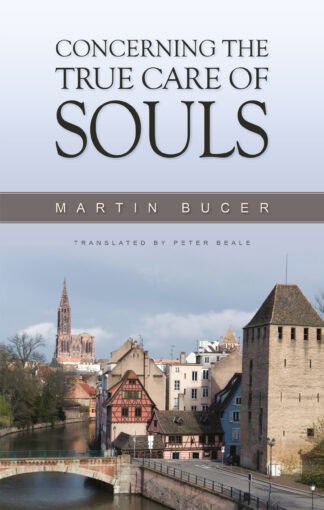Almost two years ago I shared 15 reasons why visitation is good for your Pastor (you can read it here). At the time it was so fulfilling to talk to people about what I’d written, both online and in the real world, and to feel a sense of conviction about my own pastoral practice in the light of those conversations. In this article I’m revisiting visitation, thinking through some of the reasons why we don’t visit as Pastors, and how we can overcome them.
The five deterrents listed below are intended for those in pastoral ministry who already believe they ought to visit, but find it difficult to do so:
1. We are Perfectionists and Sunday is Coming.
If you’re like me, the work of sermon preparation never feels completed. Spend as much time as you like in careful exegesis, in wide reading, in intricate structuring, in earnest prayer, and you still feel as though you need to do just a little more. I believe that it was Seamus Heaney who said of writing poetry that he constantly ‘sang It is finished’ to the tune of ‘We’ve only just begun’, and most conscientious preachers will readily identify with that. To break up the continuum of study, to venture away from those two (or three!) messages and engage with God’s people can seem like a distraction from a task which is exerting tremendous pressure on you.
But this may be to misunderstand the dynamics of pastoral visitation and pastoral preaching. Preaching and visitation are not contrary to one another, but complimentary. Many times when I have torn myself away from the desk to take up a seat in someone else’s living room I’m amazed by the correlation between what I have been thinking and praying about in private, and what is being shared with me by another believer. The fulfilment of being able to carry the fruits of study into a visit, and the (anonymised) fruits of visitation into the pulpit cannot be overstated.
So visitation is part of our preparation to preach, not apart from it.
2. We are Weak and the Needs are Great.
With regard to the work of ministry the Apostle Paul could cry ‘who is sufficient for these things?’, and for many pastors this is just as much a job description as a Scripture quotation. The needs of any fellowship of any size are really quite sobering, and if not viewed properly can be overwhelming. Faced with the task of care and counsel the pastor can feel defeated and utterly inadequate. This can be a quantitative sense of inadequacy – how can a pastor and group of elders help so many with such varied needs? – and it can also be a qualitative sense of inadequacy – people’s hearts and lives are so complex, how can we possibly hope to help in such circumstances?
These are genuine and legitimate concerns, but we can be in danger of allowing our sense that we can’t do everything to make us believe that we can’t do anything. This deterrent might respond well to a good dose of realism. We can’t do everything, we can’t see everyone, we can’t meet every need. Our people don’t need us to be their Messiah (they already have all the Messiah they need), and they ought to know that we also can’t be the panacea to every concern of body, soul and conscience. The quantitative element of visitation needs to be worked through sensitively and soberly among elders and in conversation with the church membership. In a small church it may well be possible to see every member regularly, but in a larger context (or even a mid-sized church with a few really complex pastoral issues) that may not be possible. This is an area that I’m still trying to work out in my mind, but it is plain that no one man, nor group of men can meet the sheer number of needs that present themselves. Perhaps deacons and church members can be mobilised to meet the physical and emotional needs of those whose concerns are chronic and not in need of immediate spiritual counsel, perhaps a measure of triage is needed in assessing who needs to be seen when, or perhaps we just need to get slightly better at managing and guarding our own diaries. In any case, I can’t let quantity push me away from visiting – the two visits I manage to do this week will be much more constructive than the two I didn’t do last week. We also need to recognise that most (although lamentably not all) believers have no expectation that we can solve the pastoral issues they face, but we can pastor them in those issues, and through those issues, and hopefully out of those issues. I can’t fix anything, neither can you – Christ can, and my task is to listen attentively, share appropriately, and pray unceasingly. The rest is far above all of our pay grades.
3. We are Visitors, and We Have Visited too Much.
Pastoral visits are like Cream Crackers, a few with the right accompaniment are a joy, too many dry ones in a row will choke us. If we have a Pastor’s heart, we will want to visit our people, but that same heart can make us prodigal in how much time we spend in the company of those we are responsible for. If we load too many visits into our day, or too many into our week, we will fatigue the very parts of our minds and souls which are vital for good pastoral care. We will also push preparation to a place where it becomes a dolorous pressure, and we will enter the pulpit fatigued, distant, and in the worse case scenario resentful of the task before us. And we also won’t visit much in the following week or weeks as the emotional muscle burn of doing too much will create an aversion in our minds to getting back out among people again.
I have always struggled to form a rigid ‘programme’ of visitation, and such a thing can be an unhelpful straight jacket to the spontaneous needs which often arise. My planner on a Sunday evening for the week ahead is normally bullet riddled with unforeseen issues by Tuesday. But we do need a plan regarding how many visits we will undertake, and how we will divide that time between preparation and other pressures. We also need to recognise that we are human, and sometimes we need a break. If a pastor is dealing with very serious issues – perhaps caring for a believer in the late stages of an illness, a bereaved family, or moral issues of considerable gravity – they need to recognise that following such intensity rest will be needed. Sometimes I need pockets of air between intense pastoral circumstances just to get my mind cleared and my heart warmed, and my resolve renewed. We shouldn’t feel guilty if, after a period of sustained and perhaps shambolic pastoral input, we simply need to rest on the bench for a while and let the game go on around us. Sometimes in the wake of such things we just need time to sleep, to eat, to pray, to be with our families. Helping our church to understand those things will be of benefit to us and to them.
4. We are Human and Bear Our Own Burdens.
Another deterrent in pastoral visitation can be that our own lives happen in concurrence with those of the people in our care. We don’t get a free pass on pressure, suffering and disappointment in our own hearts, or in the lives of our families. We are cross-pressured, we are a unity as human beings, and when our own circumstances are hard and heavy, walking into those of others can seem like a burden.
Of all of the deterrents listed this is possibly the hardest to resolve. Our circumstances are as individual as we are, and we (or those around us) might be best placed to decide that given what we are facing personally, pastoral visitation might need to take a back seat for a while. Away from such circumstances, however, we ought not to fear our burdens and weaknesses as we care for and share with other Christians. In 2 Corinthians the Apostle Paul identifies weakness as the conduit through which the grace, gospel, and glory of God were made known in his ministry. When we are feeling the weight of our broken world ourselves, we might be best placed to help those who are broken in it. If we give our people the impression that we are synonymous with the Saviour rather than servants of the Saviour, then we will need to suppress our own struggles; if we show and share that we are fellow pilgrims on a tough path, this might just open the way to travelling together. A burdened and broken man can be a blessing to burdened and broken people.
5. We are at War, and Satan Hates the Souls of God’s People.
As preachers we will readily recognise how hard the enemy works to break up our concentration, strafe us with interruptions, and blockade us with our own corruptions. We will, on our best days, fight to be in the Word and to be well prepared. The battlefield, however, does not begin and end at the pulpit steps or at the study door.
Some of the resistance and lethargy that we feel about visiting can doubtless be attributed to the fact that Satan knows the potential and power of deep pastoral conversation in the soul of a struggling Christian. The enemy will bar the door of every member in your church, knowing that by doing so he shuts their heart to you; Satan will give you a thousand excuses not to get out today and visit that brother or sister who is on your heart and for whom you are praying. How many times do we return from pastoral visitation refreshed in our souls, and conscious that our calling with that person at that moment was exactly what they and we needed. We must fight to care for Christians, we must do battle to be there for them, we must recognise the stubborn concern of Satan to stop us from going, and sharing, and helping.
In the athletic world it is often said that the hardest part of any training run is leaving the house. The same is true of visitation. I need to assess my own practice, my own reticence, my own reservations and ask God to deeply convict me of the worth of this work, that I must work at this work, and that he will work through the work of being with believers where they are.
This article was first published on Andrew Roycroft’s blog, Thinking Pastorally, and has been reproduced with permission.
Helpful Books for Pastors

Description
Almost two years ago I shared 15 reasons why visitation is good for your Pastor (you can read it here). At the time it was so fulfilling to talk to people about what I’d written, both online and in the real world, and to feel a sense of conviction about my own pastoral practice in […]

Visitor’s Book of Texts
A Vital Tool for Pastoral Visitation
Description
Almost two years ago I shared 15 reasons why visitation is good for your Pastor (you can read it here). At the time it was so fulfilling to talk to people about what I’d written, both online and in the real world, and to feel a sense of conviction about my own pastoral practice in […]

Wise Counsel
John Newton's Letters to John Ryland, Jr.
Description
Almost two years ago I shared 15 reasons why visitation is good for your Pastor (you can read it here). At the time it was so fulfilling to talk to people about what I’d written, both online and in the real world, and to feel a sense of conviction about my own pastoral practice in […]
